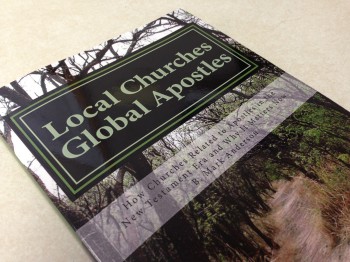Howard Jackson answers the question, “What is the definition of an apostle?”
His answer surprised me, and taught me something about the true nature of a calling from God. To be a “sent one” means, at its root, to simply be obedient to the God who is doing the sending, much like a child obeys his mother when she tells him to do something. It’s not as grandiose a thing as some make it out to be. Rather it is an act of simple, humble obedience to a grandiose God.
I’ve heard it so many times, “An apostle is a ‘sent one’, but never saw that angle before. This helps me see apostles in a fresh way.
—Ethan















